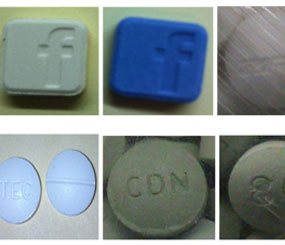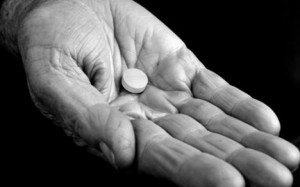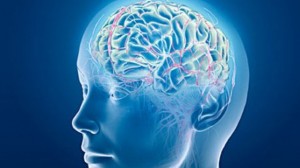 We are going to take a closer look at some of the most addictive drugs in the world. These drugs, because of their chemical components, cause drastic neurological changes that lead to an exceptionally strong level of dependency. Because these drugs affect the reward center of the brain, they keep a user hostage physically, emotionally, and psychologically. Read more →
We are going to take a closer look at some of the most addictive drugs in the world. These drugs, because of their chemical components, cause drastic neurological changes that lead to an exceptionally strong level of dependency. Because these drugs affect the reward center of the brain, they keep a user hostage physically, emotionally, and psychologically. Read more →
 Recently, Montreal police seized massive amounts of a dangerous new painkiller to hit the black market in Canada: Desmethyl Fentanyl, which is a derivative of the painkiller Fentanyl. Desmethyl Fentanyl is 80 times more powerful than morphine and 40 times stronger than heroin. This illegal synthetic substance is a dangerous new painkiller to be hitting the streets. The police intercepted the package that was on its way to an address in Colorado. The police are pretty certain that some of the drug has already been shipped to the U.S.
Recently, Montreal police seized massive amounts of a dangerous new painkiller to hit the black market in Canada: Desmethyl Fentanyl, which is a derivative of the painkiller Fentanyl. Desmethyl Fentanyl is 80 times more powerful than morphine and 40 times stronger than heroin. This illegal synthetic substance is a dangerous new painkiller to be hitting the streets. The police intercepted the package that was on its way to an address in Colorado. The police are pretty certain that some of the drug has already been shipped to the U.S.
To give you an idea of how strong this drug is, a police officer, who was wearing a protective mask and gloves, briefly came in contact with the substance during the raid and he had to be hospitalized because of heart palpitations. Three other policemen were also effected after coming in contact with the drug. The police also seized during the raid sophisticated drug equipment that’s capable of producing industrial quantities of drugs, with one machine able to produce a pill a second. (Policeone.com) Read more →
 Which pain medication are safe and which ones are dangerous? What’s surprising is that many of the pain medications deemed dangerous, are the ones that most often fill our medicine cabinets. When we think of dangerous drugs we think of heroin, meth, or other “street drugs.” We don’t tend to see every day pain medications we get from the local drug store as a threat, but pain medications and adverse drug reactions are the 4th leading cause of death in the United States. So which ones are dangerous?
Which pain medication are safe and which ones are dangerous? What’s surprising is that many of the pain medications deemed dangerous, are the ones that most often fill our medicine cabinets. When we think of dangerous drugs we think of heroin, meth, or other “street drugs.” We don’t tend to see every day pain medications we get from the local drug store as a threat, but pain medications and adverse drug reactions are the 4th leading cause of death in the United States. So which ones are dangerous?
Salicylates (Aspirin, Acetylsalicylate)
Higher doses or prolonged use of lower doses doubles your likelihood of perforated ulcers and gastrointestinal bleeding (even the coated kind!). Research also shows that 90-95% of Reye’s Syndrome cases (a disease that severely damages internal organs) were preceded with taking aspirin. Read more →
What if brain scans could predict whether someone was more vulnerable to relapse?
 In addiction recovery, relapse is most often caused by external cues and stress that act as triggers for cravings. New research is finding the area of the brain that might be responsible for why some recovering addicts are more vulnerable to relapse than others.
In addiction recovery, relapse is most often caused by external cues and stress that act as triggers for cravings. New research is finding the area of the brain that might be responsible for why some recovering addicts are more vulnerable to relapse than others.
A study, published in JAMA Psychiatry, found that recovering addicts who had elevated activity in the region of the brain known as the ventromedial prefrontal cortex or vmPFC (even when relaxed) were eight times more likely to relapse within 90 days than those whose vmPFC activty was lower when they were relaxed. (Healthland.time.com)
The study monitored the brain activity of 45 recovering alcoholics, who were in a 12 steps AA program, and had been sober for four to eight weeks. The researchers studied each person during three different types of experiences: a stressful one, one that involved a common trigger to drink, and a relaxing one. Personalized video experiences were created for each person to watch during an MRI brain scan. The brain activity patterns were then compared to 30 social drinkers of similar age, intelligence and gender who were not in recovery. Read more →
 How do we go about tracking our progress while in addiction recovery? As you work your way through recovery, it’s easy to lose sight of what you’ve achieved. While focusing on the future is important for a successful recovery, it’s also important to to occasionally sit down and evaluate how far you have come. The road to addiction recovery is not always a smooth one, and keeping track of your journey can act as a source of inspiration and insight.
How do we go about tracking our progress while in addiction recovery? As you work your way through recovery, it’s easy to lose sight of what you’ve achieved. While focusing on the future is important for a successful recovery, it’s also important to to occasionally sit down and evaluate how far you have come. The road to addiction recovery is not always a smooth one, and keeping track of your journey can act as a source of inspiration and insight.
Addiction recovery can be complicated in the fact that no two recoveries are the same. For this reason, comparing benchmarks or judging one’s own progress in light of another recovering addict is rarely a good idea. But it’s important to remember that sharing one’s recovery experience with others and exploring recovery through various social settings can increase the likelihood of a long-term successful recovery. Tracking your recovery progress can act as a great motivator, improve active participation in your own recovery, and help you stay on track when you hit the occasional low point.
Here are some ways to track your recovery: Read more →
To Date or Not to Date? That is the Question.
Managing new, romantic relationships while in recovery, especially in the early stages of your recovery, can present some challenges. Beginning a romantic relationship while in recovery can cause unnecessary stress and might put you at risk for relapse.
It is recommended that people in the first year of recovery avoid entering romantic relationships. The focus needs to be on staying in recovery. According to SelfGrowth.com, 10 Reasons to Avoid Romantic Relationships while in Early Recovery:
1. Romantic relationships take the focus off of recovery.
2. Romantic relationships take the focus off of the individual.
3. Romantic relationships increase the potential for relapse due to emotional intensity.
4. There is too much potential for underlying issues, projections, and complexes to be creating the attraction.
5. Low self-esteem and the bargaining process of relationships make early recovery a tenuous time to enter a relationship.
6. There is a strong likelihood of outgrowing the relationship quickly.
7. In early recovery you do not really know yourself yet.
8. In early recovery you may not have a healthy understanding of what love is yet.
9. There is a strong possibility of the individual in early recovery acting on, “I want what I want when I want it.”
10. In light of advice to the contrary, if you decide to enter a relationship, you are working your own program. This is self-will, and this is an addictive behavior.
When people first begin recovery, they are essentially rebuilding their life. They are reassessing all that they want in this world and of themselves. It is a time when people are getting to know themselves again. This is another reason why it might be better to wait to enter new, romantic relationships until you have spent a significant amount of time in recovery. How can you choose the right partner, when you are still getting to know yourself in your new phase of life?


